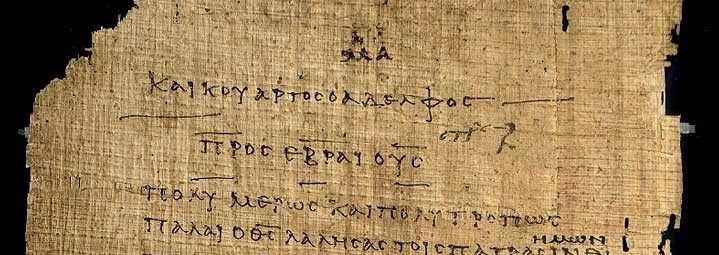The name of the Messiah is Yeshua, a common alternative of the name Yehoshua (יהושע), which means ‘Yah is salvation’ [Matthew 1:21]

THE FOLLOWING VERSES ARE MISSING IN ANCIENT MANUSCRIPTS Mark 16:9-20 9 And having risen early on the first day of the week, He appeared first to Miryam from Magdala, from whom He had cast out seven demons. 10 She went and reported to those who had been with Him, mourning and weeping. 11 And when they heard that He was alive and had been seen by her, they did not believe. 12 And after this He appeared in another form to two of them as they walked and went into a field. 13 And they went and reported it to the rest, but they did not believe them either. 14 Later He appeared to the eleven as they sat at the table. And He reproached their unbelief and hardness of heart, because they did not believe those who had seen Him after He was raised. 15 And He said to them, “Go into all the world and proclaim the Good News to every creature. 16 “He who has believed and has been immersed, shall be saved, but he who has not believed shall be condemned. 17 “And these signs shall accompany the ones who believe: In My Name they shall cast out demons, they shall speak with renewed tongues, 18 they shall take up snakes, and if they drink any deadly drink it shall by no means hurt them, they shall lay hands on the sick and they shall get well.” 19 Then indeed, after the Master had spoken to them, He was received up into the heaven, and sat down at the right hand of Elohim. 20 And they went out and proclaimed it everywhere, while the Master worked with them, and confirmed the word through the accompanying signs. Amen.
According to Metzger’s ‘A Textual Commentary on the Greek New Testament’, the first New Testament reference to speaking in tongues (Mark 16:9-20) is missing from the oldest known manuscripts, including the two oldest known Greek manuscripts, the Old Latin Codex, the Sinai Syriac (Aramaic), from one hundred Armenian manuscripts, and also from the two oldest Gregorian manuscripts (circa 897 & 913 CE).
Mark 16:9-20 is also missing in the Codex Sinaiticus, the oldest complete New Testament manuscript.
Further both Origen [Christian scholar] and Clement of Alexandria [Christian theologian and philosopher] tell us that the Book of Mark ended at verse 16:8
(Metzger)
The oldest Semitic witness, Codex S of the Old Syriac Version ends in Mark 16:8. Beyond this the Christian church fathers Jerome and Eusebius attested that verses 9-20 were absent from almost all the Greek manuscripts known to them.
Some scholars believe that these verses were added approximately around the year 240 CE
Mark 16:17 contradicts 1 Corinthians chapters 12 to 14 and Scripture cannot be broken according to John 10:35.
Unless otherwise noted, all Scripture was taken from The Scriptures,
Copyright by Institute for Scripture Research.
Used by permission.